I was in a state of panic and Duane Moore rescued me.
I get that way — nervous, itchy — when I don’t have a book going. I look over my shelves but nothing speaks to me.
And I had just been on a run of great books and had a series of wonderful reading experiences.
I also have this quirk. If I read a book by an author and really enjoy it, I won’t allow myself to read another book by the same writer until I’ve put five or six books in between them. This helps me avoid burnout.
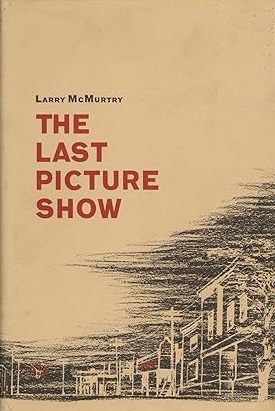
Even if it’s someone whose books are like drugs to me — Michael Connelly, Anne Tyler, Carl Hiaasen, etc. — I still follow that no back-to-back rule.
So I was stuck. None of the books were speaking to me.
Then I went to the second-hand bookstore at that temple of wonderfulness, the public library.
Browsing the shelves, eavesdropping on the cashier and another customer, I found it. Duane’s Depressed.
It’s the middle book in Larry McMurtry’s series featuring Duane Moore, and the only one in that series that I had not read and did not own. The title was a little off-putting. Who wants to read about someone else’s depression?
McMurtry, who died in 2021, left us a tremendous amount of work and he had published books in several series, taking place across three centuries.
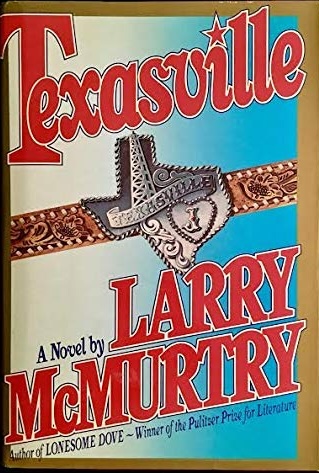
He’s most known for Lonesome Dove (1985), the Pulitzer Prize winning epic about two aged Texas Rangers, Woodrow Call and Gus McCrae, in the waning days of the West. //// Spoiler alert: Gus dies in that book. //// The characters were so beloved — by readers as well as McMurtry — that he spun off a couple of prequels featuring the cast of Lonesome Dove: Comanche Moon (1997) and Dead Man’s Walk, (1995) as well as a sequel, Streets of Laredo (1993), which concerns Call’s adventures alone, post-Gus, tracking a sadistic killer.
McMurtry also wrote a series of books set in the 20th Century, featuring a screenwriter named Danny Deck. He was the star of All My Friends are Going to be Strangers (1972) and Some Can Whistle (1989) and appeared in several other novels in what McMurtry called his Houston series. Terms of Endearment (1975) was part of this series, and Danny Deck made a cameo, as he did in Moving On (1970), a huge, brawling, deeply wonderful novel about rodeo folk. (By the way, Some Can Whistle was one of the most moving books I’ve ever read. It gripped my heart and brought me to tears. Read it and you will understand.)
There’s a series of four novels known as the Berrybender Narratives, published in the first decade of this century, about a pioneer family. Good stuff.
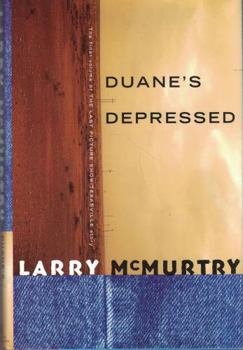
All of this brings me to Duane Moore.
Duane first appeared as part of the cast of horny teenagers in The Last Picture Show (1966). He was a football player and then a roughneck, and he was apparently headed toward the ol’ life of quiet desperation.
But … surprise. When Duane and the other denizens of Thalia, Texas, returned two decades later, our boy had become a successful oil man. Texasville (1987) brought the horny teenagers up to middle age. The earlier book focused on a large cast. There was Sonny Crawford, the simple, quiet kid who carried on an affair with the much-older Ruth Popper, wife of his football coach. We had Jacy Farrow, the prettiest girl in town, who liked to flirt with anything in a cowboy hat and tight blue jeans. The moral center of the cast, the one who served as the town conscience and mentor to Sonny and Duane, was Sam the Lion. And there were so many more rich characters.
Texasville moved Duane Moore to the center of the narrative and he starred again in Duane’s Depressed (1999), When the Light Goes (2007) and, finally Rhino Ranch (2009).
As I say, I skipped Duane’s Depressed but reviewed When the Light Goes on its publication, and was shocked at how much I’d missed Duane.
He was a widower in When the Light Goes, which served as an advertisement for elderly eroticism. The characters were what we would call “mature,” but they still fucked like rabbits. Truly a wonderful (and inspiring) book.
I came across the last Duane book, Rhino Ranch, a few years back, enjoyed it immensely but panicked as I neared the conclusion, realizing this was the end of the series..
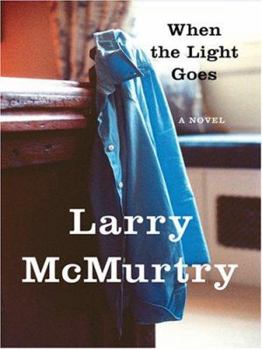
So when I picked up Duane’s Depressed at the bookstore, it was like walking into the middle of a film. I know what’s going to happen in the 20 years after the events in the book, but that didn’t lessen my enjoyment.
Here’s the outline of the story: Duane is a prosperous oil man and his kids are lazy and worthless. They leave the rearing of their children to the housekeeper and to their parents, Duane and Karla. Their grown daughters go off and party in Dallas and leave their kids in front of the television, with Grandma.
So Duane comes home one day, parks his pickup and starts walking. There’s a small cabin on his property, about six miles away from his house, and he finds himself hoofing it there. He’s done with pickup-truck culture and decides he will henceforth walk everywhere.
Naturally, no one can understand his behavior. Duane, you got a perfectly good pickup. What’s wrawng with you, Son? Karla is threatened by Duane’s walking, thinking his walking away is the first step toward divorce. His two daughters think he’s gone crazy. His coked-up son thinks dad’s going through menopause.
All of these lay people think Duane is depressed. He doesn’t think so. He thinks he’s a pilgrim, trying to find a path through this ridiculous catastrophe of life. The cowboy culture mocks Duane for the walking. He upsets his friends by openly seeing a therapist, of all things. The therapist is in Wichita Falls, so Duane gets a bicycle. He also discovers the depths in his soul, thanks to Dr. Honor Carmichael. Nothing sexual happens between them because Duane is faithfully married and devoted to Karla. But Honor and Duane acknowledge their deep attraction. (They eventually fuck like monkeys in When the Light Goes.)
McMurtry’s storytelling is, as usual, masterful. I haven’t liked every book he’s written — the motherfucker published 47 books! — but I’ve loved most of them and have actually reread some of them.
One of my primary reasons for loving Larry McMurtry: It was 1986. I was living alone, recently separated, in a minimalist apartment. I had a mattress on the floor, a lawn chair and a recently acquired copy of Lonesome Dove. The book was my only entertainment. I’d read, then fall asleep and dream I was with Woodrow and Gus. It was sometimes hard to remember what was dream and what was McMurtry’s narrative. Reading that epic novel leads my list of Top Ten Glorious Reading Experiences. (Along with Fanny by Erica Jong, The Nuclear Age by Tim O’Brien, In Country by Bobbie Ann Mason and The World According to Garp by John Irving.)
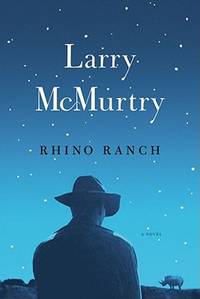
I was already a fan of McMurtry. A decade before my Lonesome Dove experience, I was working for a magazine and sent him a note, asking if he had a short story we could publish. He replied promptly: “I can’t write short fiction. I just can’t.”
Thank God he wrote such powerful and absorbing novels. He created so many worlds, spanning the 19th through 21st centuries. To me, Duane Moore has been one of his richest characters and a companion for so much of my life.
Books can do that — give us glimpses into other worlds and other lives. I’m lucky to graze McMurtry’s bibliography and find such astonishing people and stories.
